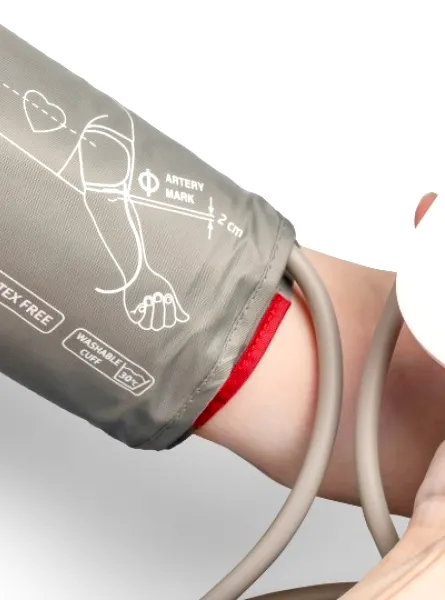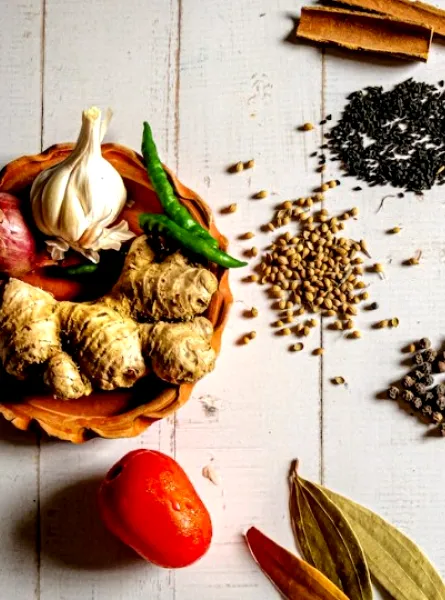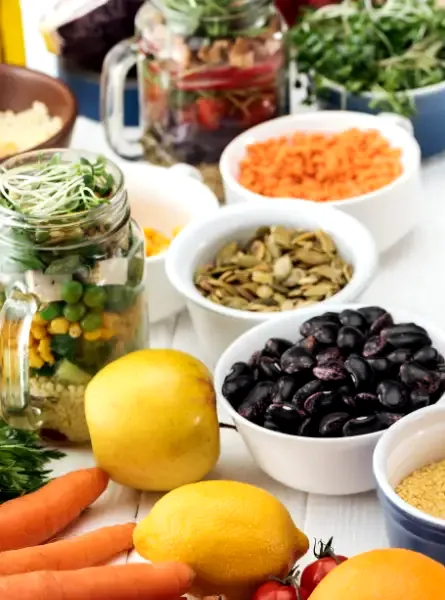
Have you ever felt a sharp pain in a joint, as if it were on fire, without any apparent reason? For many, this is how gout manifests. This often-misunderstood condition affects numerous individuals and can seriously disrupt daily life. But did you know that your diet plays a key role in preventing and managing it? With the help of our registered dietitians and nutritionists, let’s explore how to make the right food choices to keep your joints healthy over the long term.
1. What Triggers Gout?
Gout is a type of arthritis caused by excess uric acid in the blood (1). Normally, this substance is eliminated by the kidneys. However, when produced in large quantities or when the kidneys struggle to filter it, uric acid builds up as crystal deposits in the joints, often in the big toe. These crystals cause pain, swelling, and sometimes redness.
Your diet can directly influence this process. Certain foods, rich in purines (compounds that convert into uric acid), can worsen the condition, while others help limit flare-ups. Making dietary adjustments is a crucial first step to preventing gout attacks.
2. Foods to Avoid for Gout
Some foods are high in purines and can increase your uric acid levels, thereby triggering gout attacks. Here’s an overview of the most problematic foods (2-3):
Average purine content of food groups
.webp)
Adapted from Pfiffner (2024).
a. Red Meats and Organ Meats
- Why: These are particularly rich in purines, which quickly elevate uric acid levels.
- Examples: Beef, lamb, liver, kidneys, etc.
- Health Tip: Limit meat portions to 75 g per meal (about the size of a deck of cards) and complement with vegetables.
b. Seafood
- Why: Shellfish and certain fish, though nutritious, are high in purines.
- Examples: Sardines, anchovies, shrimp, lobster, etc.
- Health Tip: If you enjoy fish, opt for low-purine varieties like salmon or cod (2).
c. Alcohol
- Why: Alcohol, especially beer, slows the elimination of uric acid and increases its production (1).
- Health Tip: During a gout flare-up, avoid alcohol entirely. Otherwise, limit yourself to occasional drinks and consider non-alcoholic alternatives like our kombucha margarita mocktail.
d. Sugars and Sugary Drinks
- Why: Added fructose, found in sodas, corn syrup, and processed foods, stimulates uric acid production in the liver, increasing the risk of gout attacks.
- Examples: Candy, pastries, industrial juices.
- Health Tip: Replace sugary drinks with water, herbal teas, or naturally flavoured waters, and choose homemade desserts and snacks to control added sugars.
Should I Avoid Fruits Since They Contain Fructose?
No, you don’t need to avoid fruits! While fruits do contain fructose, they are also packed with fibre, vitamins, and minerals, which slow digestion and reduce rapid fructose absorption into the bloodstream. In fact, studies show that eating whole fruits, like cherries, may even lower the risk of gout attacks due to their anti-inflammatory properties (4).
3. Foods to Favour for Gout
Thankfully, many healthy foods can help reduce the risk of gout attacks and improve your quality of life.
Average purine content of food groups
.webp)
Adapted from Pfiffner (2024).
a. Fruits and Vegetables
- Why: Rich in antioxidants and low in purines, they reduce inflammation and protect your joints.
- Examples: Cherries, strawberries, broccoli, zucchini, etc.
- Health Tip: Aim for at least 4 servings of vegetables and 3 servings of fruits daily. Need inspiration? Check out our dietitian-approved tips for incorporating more vegetables into your meals.
b. Plant-Based Proteins
- Why: Lentils, chickpeas, tofu, and nuts contain purines, but these are less absorbed by the body, minimizing their impact on uric acid levels. They’re also rich in fibre and essential nutrients.
- Health Tip: Swap some animal proteins for tofu or textured vegetable protein (TVP) in dishes like this half-veggie burger patty recipe.
c. Dairy Products
- Why: Dairy is naturally low in purines and can help reduce uric acid levels. It’s also a good source of protein and calcium.
- Health Tip: Add Greek yogurt or cottage cheese to snacks, or use condensed milk in soups for a creamy, nutritious touch.
4. The Importance of Hydration
Water is your best ally against gout. It helps kidneys eliminate uric acid and prevents crystal formation (1). Aim to drink 2 to 3 litres of water daily. Need help remembering? Check out our dietitian’s tips for staying hydrated every day.
5. Adopting a Healthy Lifestyle
Beyond diet, maintaining a healthy weight and engaging in regular physical activity can make a significant difference. Excess weight exacerbates gout by increasing uric acid production. However, weight loss should be gradual, as crash diets can trigger a gout flare-up (1).
6. Get Personalized Support from a Dietitian
Every individual is unique, and what works for one person may not work for another. Making healthy dietary changes can feel overwhelming, but a professional, such as a registered dietitian, can guide you in making sustainable adjustments tailored to your needs and preferences.
Book an appointment with a registered dietitian nutritionist today to improve your health and prevent gout attacks. Thoughtful nutrition means a more serene life!
References
- Province of British Columbia. (2015, December 21). Recommandations pour une saine alimentation à l’intention des personnes qui souffrent de la goutte [PDF document]. https://www.pennutrition.com/viewhandout.aspx?Portal=UbY=&id=J8HnWg0=&PreviewHandout=bA==
- Les diététistes du Canada. (2023, September 13). Sources alimentaires de purines [PDF document]. https://www.pennutrition.com/viewhandout.aspx?Portal=UbY=&id=J8HsWAA=&PreviewHandout=bA==
- Pfiffner, M., Brown, W., & Jayaraman, S. (2024, October 12). How do dietary purines influence gout? Examine. https://examine.com/faq/how-do-dietary-purines-influence-gout/
- Pfiffner, M. (2024, October 12). How does fructose influence gout? Examine. https://examine.com/faq/how-does-fructose-influence-gout/





